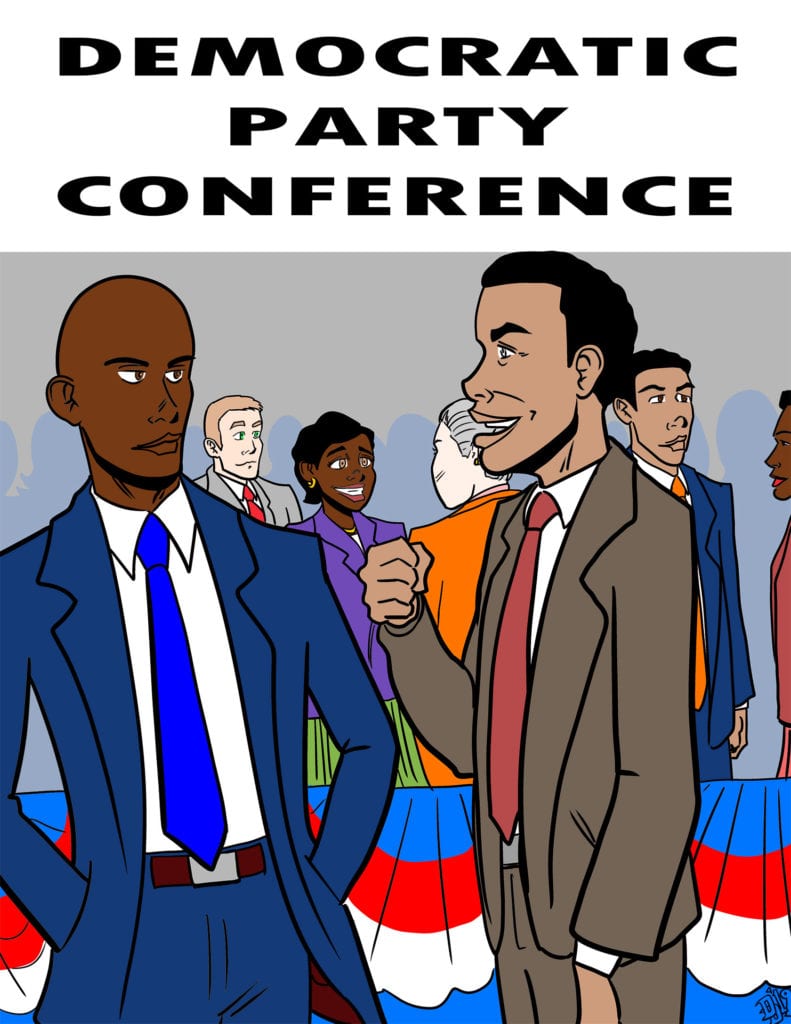
The black electorate is now generally recognized as a powerful force within the Democratic Party. The political confidence with which blacks now assert themselves suggests that they are well aware of their heightened status. The black resolve to replace Donald Trump, the racist-in-chief, will undoubtedly motivate people of color to become involved in the 2020 campaign.
Blacks were not always ardent Democrats. After President Abraham Lincoln used his political clout to amend the U.S. Constitution to outlaw slavery, supportive blacks joined Lincoln’s Republican Party after 1865. It was not until Franklin Delano Roosevelt’s “New Deal” that some blacks left the Republicans and joined the Democrats in the 1930s.
During that era, whites in the South prevented blacks from voting. There was a very practical reason for this strategy. In some states of the Old Confederacy, blacks actually outnumbered whites. With open access to the polls, blacks would have controlled the government. After the Voting Rights Act of 1965, black voters began gaining some clout in the South.
The year before, the Civil Rights Act of 1964 had made racial discrimination unlawful in education, employment and places of public accommodation. This had diminished the control of racist whites over their environment. With the backing of the law, blacks persistently challenged for equality.
In the century from 1910 to 2010, white Americans saw their dominant population position drop from 88.9 percent of the total to 72.4 percent. During the same time blacks increased from 10.7 percent of the population to 12.6 percent, Hispanics went from 0.9 percent to 16.3 percent and Asians rose from a negligible 0.2 percent to 4.9 percent.
The dramatic break with the Republican Party came in the 1964 election for president. The Republican candidate, Senator Barry Goldwater of Arizona, had opposed the Civil Rights Act. He was then able to muster only 6 percent of the black vote. This was especially surprising since almost a third of the black Republican vote went for John F. Kennedy in 1960. Lyndon B. Johnson, a Democrat, won in 1964 with 94 percent of the black vote.
As expected, Barack Obama won in 2008 with 95 percent of the black vote. In his 2012 reelection Obama had 93 percent of the black vote. This performance in 1964 and again in 2008 and 2012 established that the impact of the black vote had to be seriously taken into account.
Consider that in 2016, the black vote was 12 percent of the total and 88 percent of the black vote was for Hillary Clinton. That means 10.56 percent of all her votes were from blacks. Unfortunately, black voter turnout declined from a high of 66.6 percent in 2012 to 59.6 percent in 2016, while white turnout had risen to 65.3 percent. Clinton was nonetheless still able to win the popular vote but she lost on the Electoral College vote count.
Any candidate running for high office would like to have a bloc of votes to rely upon. African Americans should try to increase their clout by matching the voter turnout rates attained in Europe: Germany — 69.1 and Belgium — 87.2. There are only two sources of secular power in the country — personal wealth and political votes. Since blacks have been unable to accumulate wealth, there is no alternative but to develop the voting bloc or to remain with limited power.


![Banner [Virtual] Art Gallery](https://baystatebanner.com/wp-content/uploads/2024/04/Cagen-Luse_Men-at-store-e1713991226112-150x150.jpg)



